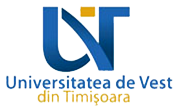Symbolic Computation
- David J. Wilson, Russell J. Bradford, James H. Davenport and Matthew England. The Piano Mover’s Problem Reformulated
- Rui Hu and Stephen Watt. Identifying Features via Homotopy on Handwritten Mathematical Symbols
- Grzegorz Marczak, Daniel Simson and Katarzyna Zając. On computing non-negative loop-free edge-bipartite graphs
- Johannes Middeke, David Jeffrey and Ahmed Almohaimeed. Common factors in fraction-free factoring of matrices
- Tateaki Sasaki and Tetsu Yamaguchi. On Algebraic Preprocessing of Floating-point DAEs for Numerical Model Simulation
- Nabil Hossain, Robert W. McGrail, Francesco Matucci and James Belk. Deciding Conjugacy in Thompson’s Group F in Linear Time
- Galina Filipuk and Maciej Haneczok. On ladder operators for little q-Jacobi polynomials and their generalizations
- Marcin Gąsiorek. Efficient Computation of the Isotropy Group of a Finite Graph: a Combinatorial Approach
- Benjamin Justus. Points Compression and Probabilistic Coordinate Recovery for Edwards Curve over Finite Field
Numerical Computing
- Mariusz Felisiak, Daniel Simson and Rafał Bocian. On Coxeter type classification of loop-free edge-bipartite graphs and matrix morsifications
- Alexandra Emilia Fortis, Stefan Balint and Teodor-Florin Fortis. Evaluation of the safe interval, the period of oscillations and the ranges of variations of the angle of attack and the pitch rate in function of the forward velocity in the case of an UAV
- Remus Danel Ene, Vasile Marinca and Romeo Negrea. Planar Stretching Flows with Partial Slip
- Corina Rotar. Controlled Mutation Evolutionary Algorithm for Multi-objective Optimization
- Dina Tsarapkina and David Jeffrey. Matlab Class for Double-Double Computation
- Islam Elshaarawy and Walid Gomaa. An Efficient Computational Framework for Studying Dynamical Systems
- Daniel Langr, Ivan Šimeček, Pavel Tvrdík and Tomáš Dytrych. Parallel Data Acquisition for Visualization of Very Large Sparse Matrices
Logic and Programming
- Walid Belkhir, Yannick Chevalier and Michael Rusinowitch. Fresh-Variable Automata (Application to Service Composition)
- Sylvain Conchon, Mohamed Iguernelala and Alain Mebsout. A Collaborative Framework for Non-Linear Integer Arithmetic Reasoning in Alt-Ergo
- Ioan Dragan, Konstantin Korovin, Laura Kovács and Andrei Voronkov. Bound Propagation for Arithmetic Reasoning in Vampire
- Andrei Arusoaie. Engineering Hoare Logic-based Program Verification in K Framework
- Lorenzo Capra and Vincenzo Stile. An extension of the Interpreter pattern to define domain-parametric rewriting systems.
- Érik Martin-Dorel, Micaela Mayero, Ioana Pasca, Laurence Rideau and Laurent Théry. Certified, Efficient and Sharp Univariate Taylor Models in COQ
- Lucian Radu Teodorescu and Rodica Potolea. Compiler design for hyper-metaprogramming
- Gabriele Paganelli and Wolfgang Ahrendt. Verifying (in-)stability in floating-point programs by increasing precision using SMT solvers
Artificial Intelligence
- Radu Tudor Ionescu. Local Rank Distance
- Ciprian Oprisa, George Cabau and Adrian Colesa. From Plagiarism to Malware Detection
- Alexandru-Ciprian Zavoianu, Edwin Lughofer, Gerd Bramerdorfer, Wolfgang Amrhein and Erich Peter Klement. An Effective Ensemble-based Method for Creating On-the-Fly Surrogate Fitness Functions for Multi-Objective Evolutionary Algorithms
- Cristian Frasinaru and Florentin Olariu. Reducing the number of useless revisions performed by constraint solvers based on AC-3
- Cristina Marinescu. Should we beware the Exceptions? An empirical study on the Eclipse project.
- Abhishek Awasthi, Jörg Lässig and Oliver Kramer. Common Due-Date Problem: Exact Polynomial Algorithms for a Given Job Sequence
- Andrei Olaru. Context Matching for Ambient Intelligence Applications
- Monica Tirea. Traders’ Behavior Effect on Stock Price Evolution
- Vinicius Almendra and Denis Enachescu. Using Self-organizing Maps for fraud prediction at online auction sites
- Andrei Sorin Sabau. Clustering Data Streams Using Mass Estimation
- Iuhasz Gabriel, Victor Ion Munteanu and Viorel Negru. Evolutionary approach to negotiation in game AI
- Marius Barat, Dumitru Bogdan Prelipcean and Dragos Teodor Gavrilut. An automatic updating perceptron-based system for malware detection
Distributed Computing
- Pedro Garcia Freitas, Aletéia P.F. Araújo and Mylene C.Q. Farias. A Parallel Framework for Video Super-resolution
- Jonas Bardino, Martin Rehr and Brian Vinter. Cph CT Toolbox: CT Reconstruction for Education, Research and Industrial Applications
- Ivan Simecek, Daniel Langr and Erik Srnec. The study of impact of matrix-processor mapping on the parallel sparse matrix-vector multiplication
- Péter Kovács and Viktor Vad. Parallel Computing of Non-Uniform Sampling Positions for Real Signals
- Péter Szilágyi. Securing communication in a peer-to-peer messaging middleware
- Ivan Simecek, Daniel Langr and Pavel Tvrdik. Space Efficient Formats for Structure of Sparse Matrices Based on Tree Structures
- Razvan-Mihai Aciu and Horia Ciocarlie. Algorithm for Cooperative CPU-GPU Computing
Advances in the Theory of Computing
- Thorsten Ehlers and Klaus Jansen. Online-scheduling on identical machines with bounded migration
- Andrei Alexandru and Gabriel Ciobanu. Algebraic Properties of Generalized Multisets
- Agnieszka Polak and Daniel Simson. Algorithmic experiences in Coxeter spectral study of P-critical edge-bipartite graphs and posets
- Inese Bērziņa, Jānis Buls and Raivis Bēts. Bounded Bi-ideals and Linear Recurrence
- Sebastian – Codrin Ditu. Token-free bounded delay codes and hash iteration
- Elena Ravve and Zeev Volkovich. A Systematic Approach to Computations on Decomposable Graphs
